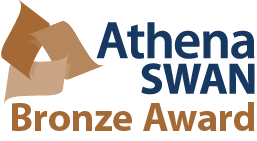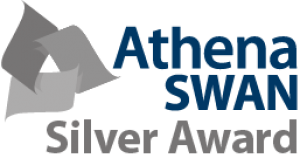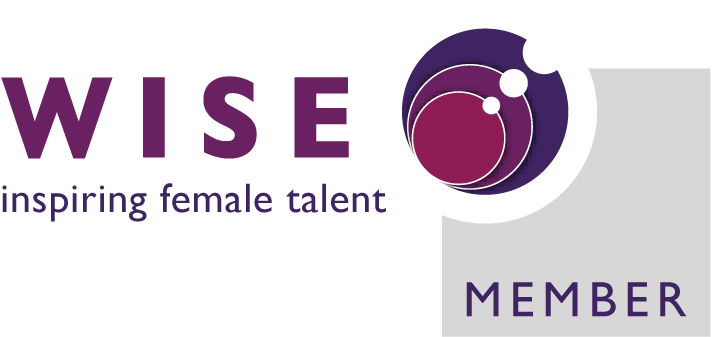You are here
- Home
- Dr Dan Stratton
Dr Dan Stratton
Professional biography
Degrees
PhD Immunology (2013)
BSc (Hons) Biochemistry (2007)
SFHEA (2022)
FHEA (2014)
Brief Biography
My lab works primarily on cell communication via extracellular vesicles, cell identity and tissue remodelling with particular focus on the development of neuroendocrine cancers and how extracellular vesicles can direct health span in model organisms. We are looking at extracellular vesicle cargoes such as mi/lncRNAs and specific proteins that are invoved in cell identify manipulation including epigenetic controls resulting in functional changes, cell death and how cells can control tissue phenotypes. We are working with both 2D and 3D tissue cultures to characterise the complex interaction of cells, how extracellular vesicles control cells and how this control propagates throughout a tissue. My lab works collaboratively with my colleagues both within the Open University and those at other institutes.
I have worked in academia for over 15 years and enjoy working with students and my colleagues to spread the excitement of scientific knowledge and concepts. I teach mainly immunology, biochemistry and cell biology but have taught across a range of subjects including molecular biology, forensic science and statistics. I manage the 3rd year lab school where we teach practical skills for working and research in a protein and RNA lab.
Research interests
Research Clusters
Cancer Research
Global Health and Development
Research Interests
Cell communication, Extracellular Vesicles (EVs), prognostics, lnc/miRNA, tissue modelling/ageing and protein design for cell communication.
Current research projects include examining EVs from Neuroendocrine Prostate Cancer in Hypoxic conditions. Examining Extra Low-Frequency Magnetic Fields effects as a potential cancer therapeutic treatment. EVs to modulate the Immunological response and tumour progression.
We are keen to collabororate.
Teaching interests
Lecturer in Biomedical Health Sciences
Production/ Presentation;
The body in balance SK190
SDK100
SK297
SS032
S290
Post Graduate Supervision, Megan O'Neill doctoral researcher (Primary Supervisor PhD Student), Charles Makanjoula (Visiting Student)
Impact and engagement
Academic consultant for BBC2 Forensic - The Real CSI (2022 to date)
Pint of Science (19th May 2019) ‘A brief guide to microvesicles’
Café Scientific (Sept 2019) The importance of science in forensic science (DNA)
BBC radio Humberside Breakfast Show (27th September 2018) ‘Forensic science’
Sao Paulo Extracellular Vesicle workshop with invited talk, ‘Characterization of microvesicles' (2016)
Biomedical Sciences External Seminar Series, School of Life Sciences, The University of Hull (June 2017) ‘Microvesicles and cancer’.
London Extracellular Vesicle meeting (Feb 2017) ‘Using ELFMFs to generate MVs’.
Imperial University, Department of Chemical Biology and Biophysics (Oct 2013) ‘The joy of microvesicles’.
Gothenburg University, 1st ISEV conference (2012) ‘Microvesicle subtypes biochemistry and physiology differ depending upon stimuli’.
Papers and Articles
Jorfi, S., Ansa-Addo, E., Mariniello, K., Warde, P., Senian, A. A. B., Stratton, D., Bax, B. E., Levene, M., Lange, S. and Inal, J. M. (2023) A coxsackie B1-mediated nonlytic Extracellular Vesicle-to-cell mechanism of virus transmission and its possible control through modulation of EV release, J Gen Virol, 104(9)
De Sousa, K. P., Rossi, I., Adbullahi, M., Ramirez, M. I., Stratton, D. and Inal, J. M. (2022) Isolation and characterization of extracellular vesicles and future directions in diagnosis and therapy, Nanobiotechnol.
Stratton, D., Malibha-Pinchbeck, M., Inal, J, (2022) Extra Low-Frequency Magnetic Field regime significantly enhances the cytotoxicity of methotrexate through transiently induced plasma membrane pores, Submitted BBRC
Antwi-Baffour, S., Malibha-Pinchbeck, M., Stratton, D., Jorfi, S., Lange, S. and Inal J., (2020) Plasma mEV levels in Ghanain malaria patients with low parasitaemia are higher than those of healthy controls, raising the potential for parasite markers in mEVs as diagnostic targets, JEV, 9:1, 1697124
Sellami M, Gasmi M, Denham J, Hayes LD, Stratton D, Padulo J, Bragazzi N., (2018) Effects of Acute and Chronic Exercise on Immunological Parameters in the Elderly Aged: Can Physical Activity Counteract the Effects of Aging? Front Immunol. 10;9:2187. doi: 10.3389/fimmu.2018.02187. PMID: 30364079; PMCID: PMC6191490.
Elliot, B., Herbert, P., Sculthorpe, N., Grace, F., Stratton, D. and Hayes, L., (2017) Lifelong exercise, but not short-term high-intensity Interval Training, Increases GDFII, Marker of Successful Aging, Physiol. Reports, Vol. 5, pp 1-13
Aydar, E., Stratton, D., Fraser, S. P., Djamgoz, M. B. A and Palmer, C., (2016) Sigma-1 receptors modulate neonatal Na 1.5 ion channels in breast cancer cell lines, EBJO, 45 (7)
Hayes, L., Inal, J and Stratton, D., (2015) Re: Inflamed macrophage microvesicles induce insulin resistance in human adipocytes, Nutrition and Metabolism, Letter
Jorfi, S., Ansa-Addo, E.A., Kholia, S., Stratton, D., Valley, S., Lange, S. and Inal, J., (2015) Inhibition of microvesicles sensitizes prostate cancer cells to chemotherapy and reduces docetaxel dose required to limit tumor growth in vivo, Sci Rep, 5
Stratton D, Moore C, Zheng L, Lange S, Inal J., (2015) Prostate cancer cells stimulated by calcium-mediated activation of protein kinase C undergo a refractory period before re-releasing calcium-bearing microvesicles. BBRC 8;460(3), pp511-7. doi: 10.1016/j.bbrc.2015.03.061. Epub 2015 Mar 19. PMID: 25797625.
Stratton, D., Moore, C., Antwi-Baffour, Lange, S. and Inal, J., (2015) Microvesicles released constitutively from prostate cancer cells differ biochemically and functionally to stimulated microvesicles released through sublytic C5b-9, BBRC, 460, pp589-95
Stratton, D., Lange, S., Kholia, S., Jorfi, S., Antwi-Baffour, S. and Inal. J., (2014) Label-free real-time acoustic sensing of microvesicle release from prostate cancer (PC3) cells using quartz crystal microbalance, Biochemical and Biophysical Research Communications, 452, pp 619-24
Inal, J.M., Kosgodage, U., Azam, S., Stratton, D., Antwi-Baffour, S. and Lange, S., (2013) Blood/plasma secretome and microvesicles, Biochim Biophys Acta, pp 2317-2325
Stratton, D., Lange, S. and Inal, J. M., (2013) Pulsed Extremely Low Frequency Magnetic Fields stimulate microvesicle release from human monocytic leukaemia cells, BBRC, pp 470-475
Inal, J. M., Stratton, D.,* Ansa-Addo, E.*, Kholia, S., Antwi-Baffour, S., Jorfi, S., and Lange, S. (2012) Microvesicles in Health and Disease, Archivum Immunologiae Therapiae et Experimentalis Vol. 60, pp 107-121
Grant, R., Stratton, D., Ansa-Addo, E., Antwi-Baffour, S., Jorfi, S., Kholia, S., Krige, L., Lange, S and Inal. J., (2011) A filtration-based protocol to isolate human Plasma Membrane-derived Vesicles and exosomes from blood plasma, Journal of Immunological Methods, Vol. 371, pp 143-151
Ansa-Addo, E. A., Lange, S., Stratton, D., Antwi-Baffour, S., Cestari, I., Ramirez, M. I., McCrossan, M. V. and Inal, J. M., (2010) Human plasma membrane-derived vesicles halt proliferation and induce differentiation of THP-1 acute monocytic leukaemia cells, J Immunol, pp 5236-5246
External collaborations
Prof Jameel Inal, School of Human Science, London Metropolitan University, UK
Prof Sigrun Lange, Life Sciences, University of Westminster, UK
Prof Sam Antwi-Baffour, the School of Biomedical and Allied Health Sciences, University of Ghana
Dr Lawrence Hayes, School of Health and Life Sciences, University of West Scotland, Scotland
Dr Leigh Madden, Faculty of Health Science, University of Hull, UK
Publications
Journal articles
Monocyte‐derived extracellular vesicles, stimulated by Trypanosoma cruzi, enhance cellular invasion in vitro via activated TGF‐β1 (2024)
Ansa‐Addo, Ephraim A.; Pathak, Paras; McCrossan, Maria V.; Volpato Rossi, Izadord; Abdullahi, Mahamed; Stratton, Dan; Lange, Sigrud; Ramirez, Marcel I. and Inal, Jameel M.
Journal of Extracellular Vesicles, 13, Article e70014(11)
A Coxsackievirus B1-mediated nonlytic Extracellular Vesicle-to-cell mechanism of virus transmission and its possible control through modulation of EV release (2023-09-04)
Jorfi, Samireh; Ansa-Addo, Ephraim Abrokwa; Mariniello, Katia; Warde, Purva; bin Senian, Ahmad Asyraf; Stratton, Dan; Bax, Bridget E.; Levene, Michelle; Lange, Sigrun and Inal, Jameel Malhador
Journal of General Virology, 104(9)
Isolation and characterization of extracellular vesicles and future directions in diagnosis and therapy (2023-01-13)
De Sousa, Karina P.; Rossi, Izadora; Abdullahi, Mahamed; Ramirez, Marcel Ivan; Stratton, Dan and Inal, Jameel Malhador
Wiley Interdisciplinary Reviews: Nanomedicine and Nanobiotechnology, 15, Article e1835(1)
Extremely low-frequency magnetic fields significantly enhance the cytotoxicity of methotrexate and can reduce migration of cancer cell lines via transiently induced plasma membrane damage (2022-10-20)
Stratton, Dan; Malibha-Pinchbeck, Memory and Inal, Jameel
Biochemical and Biophysical Research Communications, 626 (pp. 192-199)



